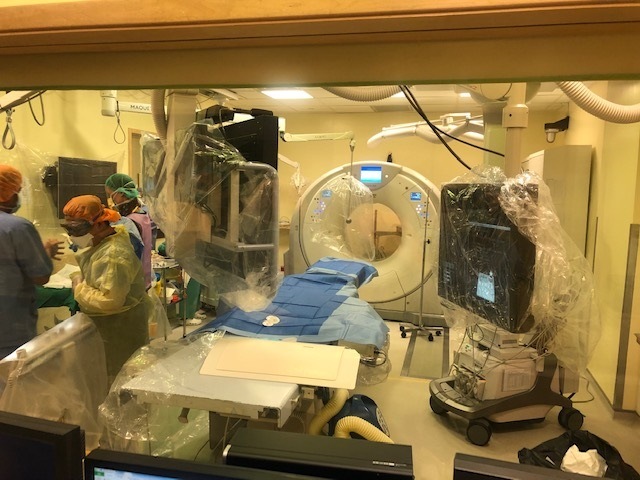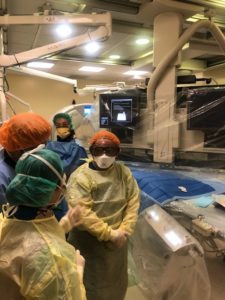
The COVID-19 pandemic will have a deep impact on the future of healthcare according to Tan Bien Soo, Singapore General Hospital (Singapore). He tells Interventional News how his institution has prepared for and dealt with the pandemic, including a six step programme for preventing the spread of the SARS-Cov-2 virus, how this response was influenced by Singapore’s experience tackling SARS and how the pandemic will shape healthcare services into the future.
Singapore General Hospital was well-equipped to deal with the COVID-19 outbreak due to previous experience with SARS. Could you expand on this, detailing the similarities and differences between COVID-19 and earlier viral epidemics?
SARS was also a coronavirus spread by droplets, as is the SARS-Cov-2 virus which is the cause of COVID-19. Based on this, we can conclude that the SARS-Cov-2 virus also spreads by droplets. However, beyond this, as it is a novel coronavirus, there is much that we still do not know about. We are now, for example, finding out that patients who are infected can have a pre-symptomatic phase when they can be very infectious. This is unlike SARS. After our experience with SARS, infection control and prevention has become an integral focus for all staff in Singapore General Hospital and we are constantly training and auditing ourselves to prepare for the next big disease outbreak. We have also, over the years, designed our infrastructure to allow for segregation of patients with different infection risks. Thus in Singapore General Hospital, we have different interventional radiology facilities for inpatients and outpatients.
What are the most important steps for interventional radiologists to take when ensuring their departments are ready for COVID-19 patients?
This has been summarised in six steps that we shared in the peer-reviewed journal Cardiovascular and Interventional Radiology. The six steps are:
- Screen and segregate patients with different infection risks
- Segregate staff to prevent health care worker infection
- Prioritise requests to allow for reduction of workload and focus on ramping up infection control measures
- Minimise movement of isolated patients
- Review and enhance the workflows for infected patients
- Adhere strictly to individual infection prevention and control guidelines
Elective procedures have been postponed or cancelled to mitigate the chances of coronavirus overwhelming the healthcare service. What counts as an elective procedure for an interventional radiologist, and what procedures are essential? Are elective procedures still cancelled in Singapore, or are you phasing them back in?
At Singapore General Hospital, we prioritise all clinically urgent and all inpatient procedures so that hospital length of stay can be shortened. For outpatient elective procedures, priority is given to patients with cancer who need treatment. Non-cancer related procedures that can be safely deferred, like fibroid embolisation, fallopian tube recanalisation and arteriovenous malformation embolisation have been postponed.
Interventional radiologists have also raised concerns over disposable sterile supplies. What actions did Singapore General Hospital take to conserve these supplies, and was there pressure from regulators to use them? Did you have any issues with your supply?
We quickly reviewed our existing guidelines for personal protective equipment (PPE) to ensure alignment with our institutional practice, and commenced refresher training in infection control. We stressed the need for appropriate use of PPE, and discouraged wastage. We also tracked our PPE stocks daily. That way, we have been able to maintain adequate supply.
On reflection, how do you feel Singapore has handled the COVID-19 outbreak? What lessons can other countries learn from the response in your country? What will the next few months look like?
In my opinion, we have handled the pandemic well. Even though we are now seeing a surge in case numbers, our hospitals are not overwhelmed, and mortality rate remains low. The response is co-ordinated nationally among all stakeholders, and not limited to just the healthcare sector. I feel that this holistic response will be the key to eventually overcoming this pandemic.
 In your opinion, how will the COVID-19 pandemic impact the future of healthcare?
In your opinion, how will the COVID-19 pandemic impact the future of healthcare?
This pandemic will have deep impact on the future practice of healthcare. Much like how we in Singapore have learned from SARS which changed our practice and infrastructure to cater for future disease outbreaks. We now have to start thinking about the ‘new clinical practice norm’ in the post COVID-19 era by learning from our current experience.
This pandemic has created a global crisis and brought significant suffering upon millions of people, but I am confident that we will find a way to overcome it and emerge stronger, better and more resilient.
Tan Bien Soo is chairman of the Division of Radiological Sciences, and senior consultant, Department of Vascular and Interventional Radiology at Singapore General Hospital.










